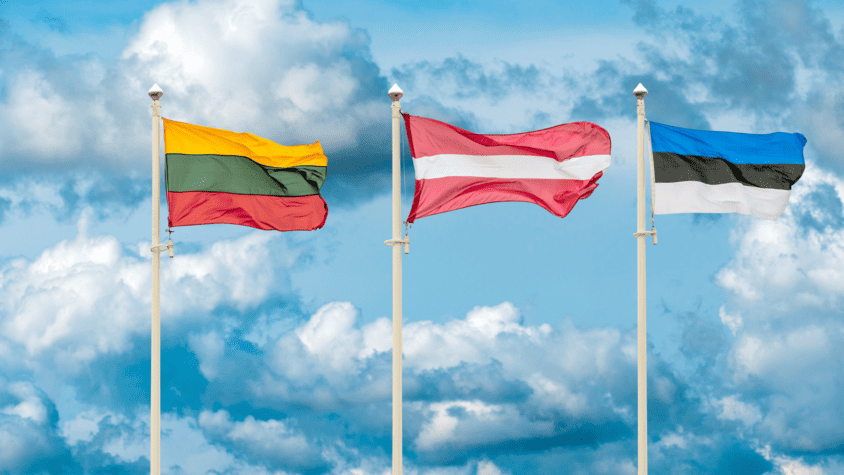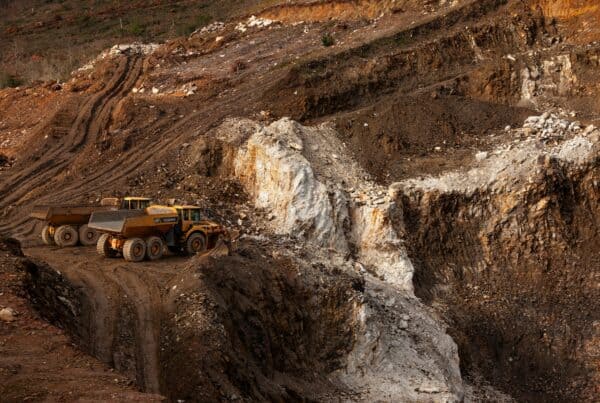Tomáš Kolomazník – Center for Security Consulting (CSC)
Tomáš Kolomaznik is PhD in Sociology from Charles University and has worked in the Ministry of Defence of Czechia, Foreign Liaison Office, as the dean of the department, where gained a wealth of knowledge being responsible for bilateral cooperation. He then worked as deputy head of the bilateral department at the Security Policy Division and participated in the International Training Course at the Geneva Centre for Security Policy. After leaving the Ministry of Defence, he started working in the field of market research and security consulting. He now deals with issues of globalization, security policy, cyber defence and the defence industry in general. (LinkedIn)
This contribution is part of the book “The Dragon at the Gates of Europe: Chinese presence in the Balkans and Central-Eastern Europe” (more info here) and has been selected for open access publication on Blue Europe website for a wider reach. Citation:
Kolomaznik, Tomáš, Baltic States: From Pragmatism to Cooling of Relations, in: Andrea Bogoni and Brian F. G. Fabrègue, eds., The Dragon at the Gates of Europe: Chinese Presence in the Balkans and Central-Eastern Europe, Blue Europe, Dec 2023: pp. 377-396. ISBN: 979-8989739806.
Introduction
If we were to evaluate China’s approach to the Baltic states, it is no different from the approach to other states of the CEE region. The main goal is to gather information about processes in NATO and EU and distribute favorable information, justifying China’s foreign policy and lobbying for closer cooperation with China.
China’s economic expansion and investment in various sectors are another strategic concern. China generally avoids participating in standard tenders. They try to negotiate directly with governments and look for a project where local governments would mainly bear the risk.
Finally, the application of so-called “soft power”. In practice, this means the increase of Chinese cultural influence in areas such as language teaching, tourism, arts and education. In this context, it should be noted that China generally applies the mentioned activities across Central and Eastern Europe. These activities aim to build a positive image of Chinese society, especially its political system, economic achievements and global role.
If we were to characterize China’s influence in the Baltics, we must first look at the way China enforces its influence. China did not plan its influence in all three countries with the same intensity but chose the strategy of “entrance country” or gateway to the region. Hence, China selected Latvia as the country to serve as a gateway due to its recent emergence as such. Why is that so? Latvia is the country with the most populous capital in this region. Riga represents not only a commercial but also a cultural “crossroads”. For this reason, many Chinese business, cultural, political and academic institutions have chosen this city as a residential location for their activities.
For these reasons, the overseas representations of various PRC institutions, including the government, state media (e.g. Xinhua), and public diplomacy (e.g. China Cultural Centre), have chosen Riga, the capital of Latvia, as the headquarters of their Baltic network (NATO Strategic Communications Centre Of Excellence, 2021).
Another interesting finding is that negative views of China do prevail within the Baltic region, especially in Lithuania and Estonia. But if we look at Latvia, 55% of the population has a neutral attitude towards China (BNN,2022). On the one hand, the Baltic states are not fundamentally different from each other, but on the other hand, each country has its specifics. So let’s look at them in more detail.
Latvia
Latvia, like China’s gateway to the Baltics
Sino-Latvian relations have undergone specific dynamics over the past 30 years. The cooperation between China and Latvia in the nineties, we can talk about the so-called pragmatism in relations. However, this trend was characteristic of most CEE states.
The beginning of building relations between the two countries had a somewhat awkward start. In addition to China, Latvia also tried to build relations with Taiwan. For Latvia, as for the rest of the Baltic countries, relations with Taiwan reflected their values associated with the struggle for independence. For this reason, the issue of Taiwan and its quest for independence were crucial for these countries.
On the other hand, the mentioned steps negatively affected relations with China, which began to cool in the first half of the nineties. But this situation did not last long. China gradually realised that its harsh attitude towards the newly emerging states in the Baltics for their policy towards Taiwan could be counterproductive. For this reason, Beijing tried to moderate its attitude. Generally, China has decided not to undermine the position of the Baltic countries in any way and not to block their efforts to join, for example, the EU. (Kante,2022).
Pragmatism in relationships
Like the other Baltic states, Latvia started cooperation within the 16+1 format in 2012. China and Latvia started their relations mainly in the field of culture and education, and it was gradually followed by economic cooperation.
Latvia led pragmatic relations with China at all levels. Latvia’s priorities were oriented in co-operation in the transport and logistics sector. Latvia, for example, coordinates co-operation in the logistics sector in the “17 + 1” format.
In the economic field, China was not the main export partner for Latvia. In 2021, exports to China represented around 1% of the total export. Latvia’s priorities were cooperation in the transport and logistics sector, investment attraction for high-added value projects, promotion of trade relations and tourism, and the exchange of students and teaching staff. Latvians mostly export wood or its particles, natural minerals and machinery to China. On the other hand, China has become a significant importer, in 2021 it was the 6th most important importer for Latvia. Cooperation and import grew, especially in the years 2016 – 2020, namely in the field of transport and logistics. China was very active in applying so-called “soft power”, trying to develop cooperation in the field of culture and education. For example, Riga Stradins University created its own Confucian Institute. This institute was, among other things, a center for the spread of Chinese ideology. Several of its representatives were scientists from the previous regime connected to the Communist Party and the KGB (Hiršs, 2022).
Pragmatic politics transformed into neutral position
Specific imbalances and disproportions in economic relations and China’s positions on human rights led to a reassessment of relations. In recent years, there have been fundamental changes in the relations between Latvia and China. This trend is influenced mainly by two factors. The first factor is China’s growing role in the global economy. The second factor is China’s rapprochement with Russia. The second factor came to the fore, especially after the Russian invasion of Ukraine.
If we were to evaluate the current situation in Latvia-China relations, the key seems to be the abandonment of the 17+1 project, in which Latvia joined in 2012. Latvia declared withdrawal from this format in the summer of 2022. Latvia reassessed its involvement in this project and decided cooperation is limited to the bilateral level. (MFA of Latvia,2022)
If we had to answer the question of why Latvians take a mostly neutral attitude towards China, the answer lies in their liking for Chinese technology and IT products. Latvians believe in Chinese technology, while in one of the surveys during the Covid-19 pandemic, Latvians would not choose a vaccine manufactured in China. In contrast, the European vaccines were the most suitable. Thus, the threat in medicine appears to be present, while technological advancements at a low cost are acceptable. (Kante,2022)
Estonia
The Dalai Lama’s visit cooled relations, but not cooperation
Sino-Estonian relations started immediately after the declaration of Estonian independence in the early 1990s. China has taken a pragmatic approach to relations, and supported Estonian membership in NATO and the EU. An interesting moment was the Chinese efforts to establish military cooperation, which ended in smaller projects, such as joint participation in military competitions or exchanging experts. (Mikelsaar,2022).
During the economic crisis (2008), cooperation between both countries intensified. The crisis did not affect China much, and Estonia took advantage of it pragmatically. Intergovernmental economic commissions were created and relations in this area intensified. (Andrijauskas, 2021)
Relations cooled after the Dalai Lama’s visit to Estonia in 2011. A certain paradox was that, despite the cooling of relations, Estonia, Latvia, and Lithuania were involved in the 16+1 cooperation format.
Estonia as an attractive partner in the field of technology
Cooperation between China and Estonia took place mainly in IT technologies. For example, China used Estonian IT expertise in Estonia to develop China’s Huawei technologies. Cooperation was also oriented towards universities and development centers in the field of IT or AI. The global situation and US-China relations meant some caution in IT cooperation. Estonia signed a joint declaration with the US to ban the Chinese technology company Huawei’s involvement in developing the new 5G networks. (US Embassy, 2019). Chinese investments in Estonia’s critical infrastructure and connectivity sector pose sensitive issues with “long-term impacts” on Estonia’s economic and social development.
China’s interest concerning Estonia was primarily technological. Estonia is among the states with an extensive development of digitization. Membership in NATO and Estonia’s position on the eastern flank posed risks to the country’s security and, simultaneously, the possibility of Chinese espionage in the Alliance. For these reasons, Estonia decided it would no longer participate in the cooperation platform between Central and Eastern European countries and China. (MFA, 2022)
Since cooperation in the economic field did not bring the expected effect but rather brought risks, Estonia’s position is more than understandable. Considering this fact, Estonia maintains rather formal and pragmatic relations with China. But for China, from a strategic point of view, Estonia still represents an important buffer country between the European Union/NATO and Russia.
Lithuania
Lithuania, as China’s most prominent critic in the Baltics
Lithuania is the largest of the three Baltic states by area. Like the other Baltic countries, it has a particular interest in preserving international rules, human rights, democracy, a liberal economy and peace. Because of this set policy, it often got into tension with Beijing. However, none of the Baltic states have come into conflict with China as much as Lithuania. In 2021, Lithuania became the first state to officially withdraw from the Beijing-led China-Central and Eastern European Cooperation (16/17+1) initiative. (Andrijauskas,2022)
Lithuania was the first Baltic state to declare independence in 1990. Among other countries, he received support from the Tibetan spiritual Dalai Lama, who visited Vilnius shortly after (note: The Dalai Lama visited Lithuania several more times). This event foreshadowed Sino-Lithuanian relations in the following three decades. Trade between Lithuania and China remained at a relatively low level. Only one per cent of Lithuania’s exports went to China, and China was only the 40th most significant source of foreign investment in Lithuania. Meanwhile, the Covid-19 pandemic has decimated the number of Chinese tourists visiting Lithuania.
Human rights issues as a starting point for relations with China
In addition to relations with the Dalai Lama, Lithuania also maintained ties with Taiwan, which brought retaliation from China. Lithuanian parliament adopted a resolution condemning China’s human rights persecution of Uyghurs in Xinjiang as a “genocide” (2021).
After Lithuania announced the opening of a Taiwanese embassy in the capital Vilnius, continuing a long-term trend of leaning towards the island country, mainland China’s heated reaction did not take long. In 2021, China officially downgraded its representation in Vilnius to the level of chargé d’affaires.
Lithuania has also become very vigilant in other economic sectors. It was no surprise that Lithuania’s government made a joint declaration with the US on 5G security that restricted one of the only remaining areas of Sino-Lithuanian cooperation, mobile technology, in September 2020. (Haas, 2023)
Lithuania’s positions on human rights issues concerning China can thus be compared with the positions and activities of the Czech government, which is also very active in this area. The mentioned facts significantly influenced Lithuania’s attitude towards China and willingness to develop projects in various areas. Lithuania shows the least inclination toward deeper cooperation among the Baltic countries, mirroring a less positive perception of China.
Romania and Bulgaria: Countries with Different Intensities of Relations at Different Times
We would also find some differences if we look at the situation in Romania and Bulgaria. The relations and attitudes of both countries towards China are connected with the relations towards Russia. Romania has long-term concerns about Russia’s influence, especially after the annexation of Crimea in 2014. Russia’s rapprochement with China was, therefore, also reflected in Romania’s attitudes towards China, where relations and individual projects gradually weakened. Bulgaria does not show such concerns about Russia and does not see a significant problem in its rapprochement with China. Another factor is that Romania is trying to lean more towards the West, it wants to build an image of a country that promotes Western standards. For this reason, it is gradually weakening relations with China. In this regard, Bulgaria is not as distinct as its Romanian neighbour. (Brinza, 2020)
The current situation, whether the war in Ukraine or US-China relations, has thus been reflected in the attitudes of both countries towards Beijing. The cooling in US/EU-China relations is thus logically reflected on the bilateral level. Both countries are increasingly leaning towards US and EU policies. We can state that China’s influence and activities are weakening in both countries. Both countries are trying to stick to the course that the European Union is taking towards China, and at the same time, they are pragmatically focusing on EU projects, especially in the economic field.
Romania
China’s great expectations in the beginning
At the crossroads of Southeast, Central and Eastern Europe, Romania has often been seen as a country that moves between great powers. In 2004 and 2007, it became a full member of NATO and the EU. Under the previous regime, dictator Nicolae Ceaușescu tried to find a balance between the Soviet Union and China. As the young generation of Romanians looked westward, Romanian elites maintained relatively close ties with China for much of the 1990s, hoping to attract investment and maintain a powerful connection. In return, Beijing has been wary of Romania as a potential long-term ally. The situation today seems quite different, as Romania leans increasingly towards the West and away from China, which offers little to the new generation of Romanians and has been unable to fulfil its promise of investment. Although Beijing has retained a small part of its old network of Romanian friends, its influence is waning. (Carnegie, 2021)
Infrastructure, energy and IT as the most attractive areas for China
Like other Eastern Bloc countries, Romania joined the 16+1 format. China’s efforts concerning Romania have been almost exclusively linked to infrastructure and energy projects under the Belt and Road Initiative, among them high-speed railway, 5G technology through Huawei, Constanța Port Authority, Cernavodă nuclear power plant and conventional energy plants in Tarnița and Turks-Rovinari. Beijing, as we have already mentioned, prefers projects that are not awarded through a tender process. Still, through direct negotiations with the relevant political actors, which guarantees Chinese profits, and there is the possibility to transfer the risk to the Romanian state as much as possible.
In its propaganda and influence operations, China targeted Romanian elites and key figures within the political system rather than the Romanian population. For this, China used and still uses its Confucius Institutes to build small groups of elites who know its language and culture but who are apolitical and show little interest in human rights and democracy. These groups then help create a positive image of China in Romania. (Zamfir, Tiut, 2022)
During the government of Prime Minister Ponta (2012-2015), we can talk about the fact that Romanian-Chinese relations were the best in the last 30 years. Nevertheless, Prime Minister Ponta supported strong but less institutionalized ties between the two countries. At that time, through Prime Minister Ponta, China also received significant support in international forums. At that time, Romania signed several contracts worth 8.7 billion dollars with China. China’s open support and lobbying for Chinese projects in Romania is compared to the same situation in the Czech Republic, where Czech President Zeman lobbied significantly for China. (Foreign Policy, 2023)
Romania’s pragmatic attitude led to a cooling of relations
After the leaving of Prime Minister Ponta, Romanian-Chinese relations began to weaken. A certain reserve of relations between Romania and China is also due to the fact that Romania fulfills its commitment to NATO and spends around 2% of GDP in the long term. D. Trump appreciated this fact during the visit of Romanian President Klaus to the White House in 2019. Romania highly valued these attitudes and therefore tried to keep its relations with China at the lowest possible level. (Romanian Insider, 2019) Thus, Romania applied a more pragmatic approach, as it understood that the Trump administration’s affection would bring them more than deepening cooperation with China.
Political and economic relations between Romania and China are at their lowest in three decades. The war in Ukraine has raised concerns about a possible future wider alliance between China and Russia. Although Romania is not a vocal critic of China, given the current security situation in Europe, it does not want to intensify relations and cooperation in any way.
Bulgaria
Bulgaria is not among China’s priorities
Bulgaria has never been one of Beijing’s foreign policy priorities, just as China has not been an essential diplomatic destination for Bulgaria. Instead, China’s goal has been to build an influential lobby in Bulgaria that would prevent Bulgaria from joining China’s prominent critics.
During the first two decades after the end of the Cold War, China was not a priority of Bulgaria’s foreign policy, which was mainly focused on the country’s Euro-Atlantic integration. Another reason for the cooling was ideological incompatibility, as all Bulgarian governments during the transition period have shown that they have cut themselves off from the country’s communist past, or rather its ideology, so closer relations with countries like China would be pretty problematic, especially considering the highly active role and influence the US has had on Bulgaria and its government since the early 1990s.
Since the inception of the BRI, this trend has gradually changed. In the past ten years, Bulgaria has been actively involved in China’s “16 + 1” initiative for Central and Eastern Europe, and until recently, relations between the two countries have been developing relatively well, based on a non-ideological, pragmatic approach. As a result, Beijing has significantly expanded cooperation with Bulgaria at the national and largely sub-national levels in areas such as culture, education, agriculture, research, public procurement and e-government. (Shopov, 2022)
Bulgaria does nothing against risky Chinese investments
All in all, attitudes towards China are not only in the broader Western context; they remain primarily bilateral. Although Bulgaria does not openly declare positive relations towards China, it is, along with Croatia and Cyprus, one of the few EU member states that have decided not to introduce a system of screening foreign direct investments. Bulgaria needs legislative instruments to create such a system. In addition, the country has been criticized on numerous occasions for its generous investment passport scheme. Since 2014, the main beneficiaries of this program have been Chinese citizens. (Shopov, 2022)
Although the Bulgarian government has long supported Chinese initiatives and projects in Europe, it had to evaluate their small contribution pragmatically. For this reason, Bulgaria leans more towards EU positions concerning China. Nevertheless, the general attitude towards China is positive in Bulgaria, and the pro-Beijing lobby in the country remains strong but with limited access to the mainstream political and cultural spectrum. The war in Ukraine has exacerbated Bulgaria’s political instability, with the country’s political elite divided over its approach to Russia. Thus, China still has an opportunity to try to acquire part of the Bulgarian company. However, these are only hypothetical considerations, as the leading political players in Bulgaria are currently more oriented towards European projects. (Stefanov,2022) In this context, the current Chinese influence in Bulgaria is also limited, just like in most countries of the Eastern bloc.
In its economic activities, China can take advantage of insufficient legislation within the business environment. Bulgaria, for example, belongs to the countries that have inadequate tools for screening foreign investments. Legislative deficiencies can thus open up space for Chinese activities.
Bibliography
Carnegie: https://carnegieendowment.org/2021/10/13/china-s-influence-in-southeastern-central-and-eastern-europe-vulnerabilities-and-resilience-in-four-countries-pub-85415
Rufin Zamfir and Andrei Tiut, Chinese Influence in Romania, 2022, https://cepa.org/comprehensive-reports/chinese-influence-in-romania/
Romanian Insider. Presidents of U.S. and Romania issue joint statement on future bilateral relations. 2019https://www.romania-insider.com/iohannis-trump-meeting-august-2019
Foreign policy, betting on wront politicinas: https://foreignpolicy.com/2023/03/10/china-influence-diplomacy-central-eastern-europe-czech-republic/
Ruslan Stefanov, Chinese Influence in Bulgaria, 2022, https://cepa.org/comprehensive-reports/chinese-influence-in-bulgaria/
Evgeniy KANDILAROV, Bulgaria-China Relations in the Context of the Changing World – Challenges and Opportunities. Working paper, 2023, https://china-cee.eu/working_papers/bulgaria-china-relations-in-the-context-of-the-changing-world-challenges-and-opportunities/
Vladimir Shopov, Let a thousand contacts bloom: How China competes for influence in Bulgaria. European Council on Foreign Relations, 2022, https://ecfr.eu/publication/let-a-thousand-contacts-bloom-how-china-competes-for-influence-in-bulgaria/
Andreea Brinza, Strategic competitors in search of China: The story of Romania and Bulgaria, 2020, https://mei.edu/publications/strategic-competitors-search-china-story-romania-and-bulgaria
Hiršs Mārtiņš, Chinese Influence in Latvia. CEPA, August 2022. Available at: https://cepa.org/comprehensive-reports/chinese-influence-in-latvia/
Nato Strategic Communications Centre Of Excellence: China’s Influence In The Nordic–Baltic Information Environment: Latvia And Sweden, November 2021, Executive-summary-Chinas-influence-in-the-NordicBaltic-FINAL-32653.pdf
Latvia-China Cooperation and Economic Relations in 2022 In: Weekly Briefing, Vol. 56. No. 2 (LVA) November 2022 https://china-cee.eu/2022/11/20/latvia-economy-briefing-latvia-china-cooperation-and-economic-relations-in-2022/
Shankar Priyanka, Why are Baltics sceptical of China relations? https://www.dw.com/en/why-are-the-baltics-becoming-skeptical-of-relations-with-china/a-62890458
Kante Justīne, Latvia and China: Entering the Post Optimism Period. Rīga Stradiņš University 2022 Available In: https://dspace.rsu.lv/jspui/handle/123456789/9855
Baltic News Network, December 2022 https://bnn-news.com/55-of-respondents-in-latvia-are-neutral-towards-china-study-finds-241491
“Latvia ceases its participation in the cooperation framework of Central and Eastern European Countries and China”, Ministry of Foreign Affairs of the Republic of Latvia, 11 August 2022, https://www.mfa.gov.lv/en/article/latvia-ceases-its-participation-cooperation-framework-central- and-eastern-european-countries-and-china
Mikelsaar, Anniki, Estonia and China: Changing role, Perceptions, and Security Implications, Rīga Stradiņš University, 2022, https://doi.org/10.25143/China-in-the-Baltic-States_2022_ISBN_9789934618154_06-31
Konstantinas Andrijauskas, “Baltic Perspective on Connectivity with China”, In Nordic-Baltic Connectivity with Asia via the Arctic: Assessing Opportunities and Risks, ICDS, 2021, PP. 234–51,https://icds.ee/wp-content/uploads/2021/09/ICDS_EFPI_Book_Nordic-Baltic_Connectivity_with-Asia_via_the_Arctic_Gaens_Juris_Raik_September_2021.pdf
“United States–Estonia Joint Declaration on 5G Security”, U.S. Embassy in Estonia, 2 November 2019, https://ee.usembassy.gov/joint-declaration-on-5g/
MFA of Estonia Statement, https://vm.ee/en/news/estonia-will-no-longer-participate-cooperation-format-central-and-eastern-europe-and-china
Konstantinas Andrijauskas, An Analysis of China’s Economic Coercion Against Lithuania, 2022, https://www.cfr.org/blog/analysis-chinas-economic-coercion-against-lithuania
Devin Haas, Why Lithuania and Czechia are pursuing closer ties with Taiwan, Emerging Europe, 2023 https://emerging-europe.com/news/why-lithuania-and-czechia-are-pursuing-closer-ties-with-taiwan/
Lithuania external relations briefing: Overview of Lithuania’s External Affairs in 2022. https://china-cee.eu/2023/01/05/lithuania-external-relations-briefing-overview-of-lithuanias-external-affairs-in-2022/
Tomas Janeliūnas, Raigirdas Boruta, Lithuania’s Confrontation with China Over Taiwan: Lessons from a Small Country, 2022, https://globaltaiwan.org/2022/07/lithuanias-confrontation-with-china-over-taiwan-lessons-from-a-small-country/





